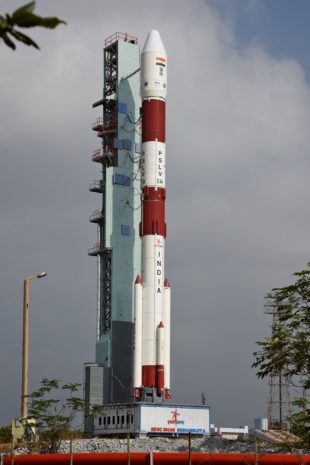
India’s proposed Venus mission attracts international payload proposals
PTI, Nov 23, 2020, 1:08 PM IST

Bengaluru: The Indian Space Research Organisation (ISRO) has short-listed 20 space-based experiment proposals, including from France, for its proposed Venus orbiter mission ‘Shukrayaan’ to study the planet for more than four years.
These include “collaborative contributions” from Russia, France, Sweden and Germany, sources in the Bengaluru-headquartered space agency said.
ISRO was earlier eyeing June 2023 for the country’s first mission to Venus.
“But we are currently reviewing this mission timeline due to delays arising from the pandemic situation”, an ISRO official said. “Future launch opportunity is either in 2024 or 2026”.
It was noted that the optimal launch window (when Venus is closest to the Earth) comes about every 19 months.
Of the Indian and international payload proposals it received in response to an announcement of opportunity for novel space-based experiments to study Venus, ISRO has short-listed 20.
“These 20 payloads (scientific instruments) proposals, including collaborative contributions from Russia, France, Sweden and Germany, are currently under review”, the ISRO official said.
The one already selected, according to French space agency CNES, is France’s VIRAL instrument (Venus Infrared Atmospheric Gas Linker) co-developed with the Russian space agency Roscosmos, and the LATMOS atmospheres, environments and space observations laboratory attached to the French national scientific research centre CNRS.
“Swedish Institute of Space Physics is engaged with India’s mission to Venus,” sources said.
According to ISRO, scientific objectives of ISRO’s Venus mission are the investigation of the surface processes and shallow subsurface stratigraphy; and solar wind interaction with Venusian Ionosphere, and studying the structure, composition and dynamics of the atmosphere.
Venus is often described as the “twin sister” of the Earth because of the similarities in size, mass, density, bulk composition and gravity. It is believed that both planets share a common origin, forming at the same time out of a condensing nebulosity around 4.5 billion years ago, ISRO had noted in its announcement of opportunity.
Venus is around 30 per cent closer to the Sun as compared to Earth resulting in much higher solar flux.
Exploration of Venus began in the early 1960s. Venus has been explored by flyby, orbiter, a few lander missions and atmospheric probes.
“In spite of great progress made in exploring Venus, there still exist gaps in our basic understanding about surface/sub-surface features and processes, super-rotation of the Venusian atmosphere and its evolution and interaction with solar radiation/solar wind,” ISRO had said.
The payload capability of the proposed 2500-kg satellite, planned to be launched onboard GSLV Mk II rocket, is likely to be 175 kg with 500W of power.
The proposed orbit is expected to be around 500 x 60,000 km around Venus. This orbit is likely to be reduced gradually, over several months to a lower apoapsis (farthest point).
Udayavani is now on Telegram. Click here to join our channel and stay updated with the latest news.
Top News

Related Articles More

Notorious gangster wanted in UAPA case arrested at Nepal border

‘Condition critical’, say doctors as farmer leader Dallewal’s fast enters 27th day

ISRO to study how crops grow in space on PSLV-C60 mission

Vandalism at Allu Arjun’s residence in Hyderabad

PM Modi to attend Christmas celebrations hosted by Catholic Bishops’ Conference of India
MUST WATCH
Latest Additions

Kannada Sahitya Sammelana: Food distribution creates stir

Rohit gets hit in nets, practice pitches on slower side

India & Kuwait elevate ties to strategic level; ink defence pact after PM Modi meets top Kuwaiti leaders

In Kuwait, PM Modi meets yoga practitioner, other influencers from Gulf country

Notorious gangster wanted in UAPA case arrested at Nepal border
Thanks for visiting Udayavani
You seem to have an Ad Blocker on.
To continue reading, please turn it off or whitelist Udayavani.
















